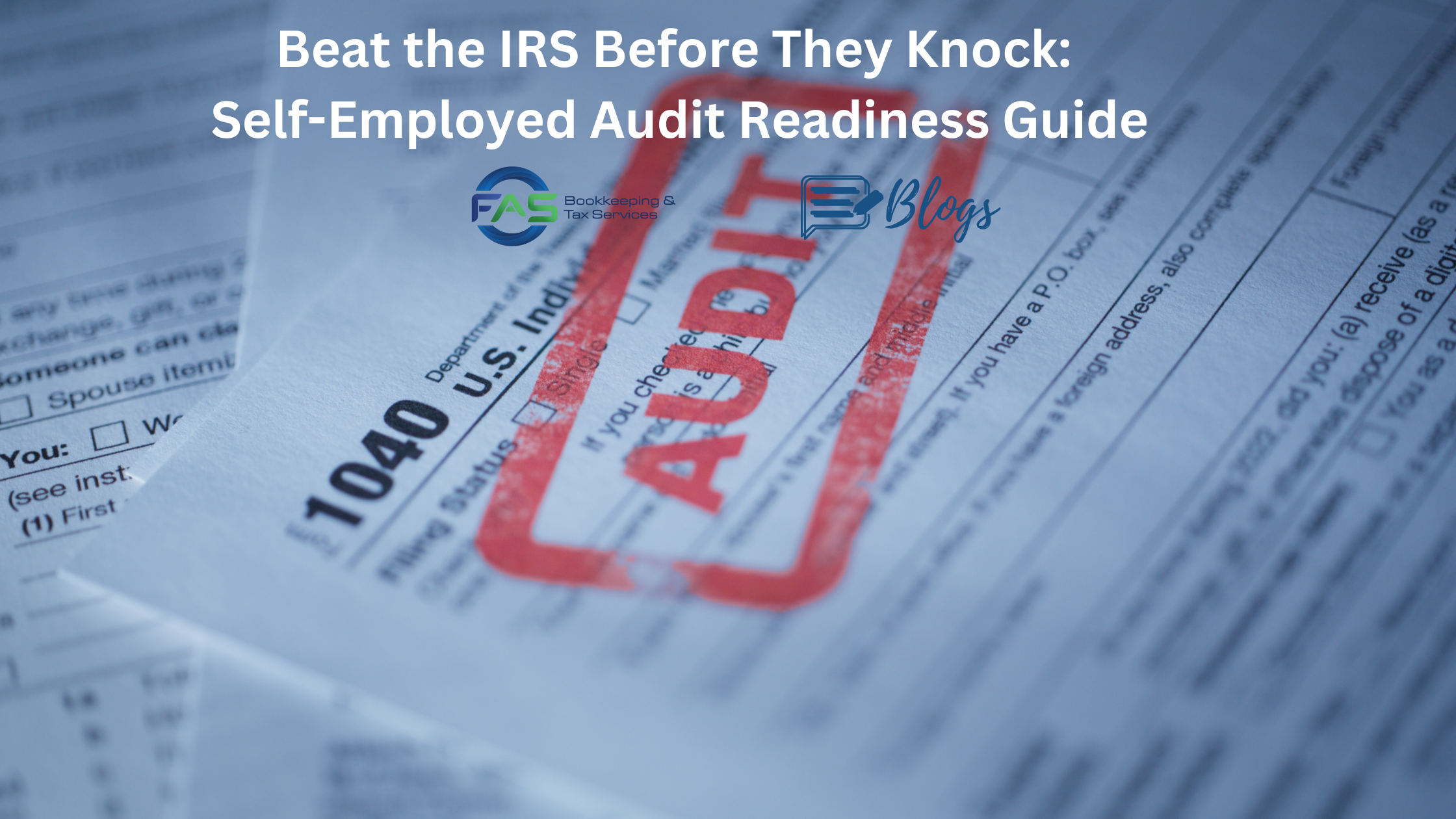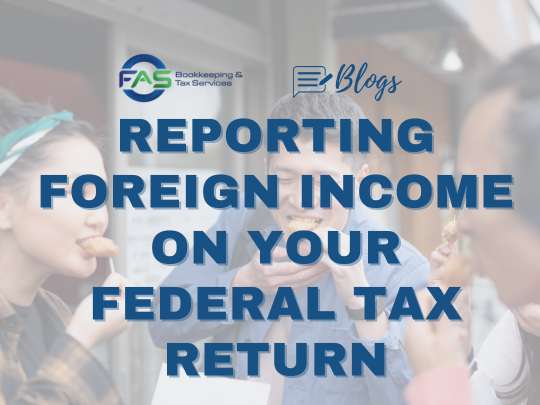Reporting Foreign Income on Your Federal Tax Return
By law, U.S. citizens and resident aliens living abroad must file a U.S. income tax return and report any worldwide income. Some key tax benefits, such as the foreign earned income exclusion, are only available to those who file U.S. returns. As such, if you are living or working outside the United States and Puerto Rico, you generally must file and pay your tax the same way as people living in the U.S. This includes people with dual citizenship. Here’s what taxpayers need to know about reporting foreign income:
Reporting Worldwide Income
Federal law also requires U.S. citizens and resident aliens to report any worldwide income, including income from foreign trusts and foreign bank and securities accounts. In most cases, affected taxpayers need to file Schedule B (Form 1040), Interest and Ordinary Dividends, with their tax returns. Part III of Schedule B asks about the existence of foreign accounts, such as bank and securities accounts, and usually requires U.S. citizens to report the country in which each account is located.
Some taxpayers may need to file additional forms with the Treasury Department:
Form 8938. Generally, U.S. citizens, resident aliens, and certain nonresident aliens must report specified foreign financial assets on Form 8938, Statement of Specified Foreign Financial Assets if the aggregate value of those assets exceeds certain thresholds. FATCA (Form 8938) is submitted on the tax due date (including extensions, if any) of your income tax return.
FBAR. Taxpayers with foreign accounts whose aggregate value exceeded $10,000 at any time during 2022 (or in 2023 for next year’s filing returns) must file a Treasury Department FinCEN Form 114 (formerly TD F 90-22.1), Report of Foreign Bank and Financial Accounts (“FBAR”). FBAR is not a tax form but is due to the Treasury Department by April 18, 2023, and must be filed electronically through the BSA E-Filing System website. It may be extended to October 16.
Foreign Earned Income Exclusion
Many Americans who live and work abroad qualify for the foreign earned income exclusion when they file their tax return. This means taxpayers who qualify will not pay taxes on up to $112,000 of their wages and other foreign earned income they received in 2022 ($120,000 in 2023).
Credits and Deductions
Taxpayers may also be able to take either a credit or a deduction for income taxes paid to a foreign country. This benefit reduces the taxes these taxpayers pay in situations where both the U.S. and another country tax the same income.
An income tax filing requirement applies even if a taxpayer qualifies for tax benefits such as the Foreign Earned Income Exclusion or the Foreign Tax Credit, which reduce or eliminate U.S. tax liability. These tax benefits are available only if an eligible taxpayer files a U.S. income tax return.
Automatic Extension
U.S. citizens and resident aliens whose tax home and abode are outside the U.S. and Puerto Rico on April 18, 2023, qualify for an automatic two-month extension (until June 15) to file their 2022 federal income tax returns. The extension of time to file also applies to those serving in the military outside the U.S. Taxpayers must attach a statement to their returns explaining why they qualify for the extension.
Additional Extension of Time to File
U.S. citizens and resident aliens living abroad may be granted a filing extension of up to six months (October 16, 2023) by filing Form 4868, Application for Automatic Extension of Time to File U.S. Individual Income Tax Return prior to the due date of the tax return (April 18, 2023). However, a taxpayer filing an extension must pay any tax due by the original date or be subject to late payment penalties and interest.
If you’re a taxpayer or resident alien living abroad that needs help with tax filing issues, IRS notices, and tax bills, or have questions about foreign earned income and offshore financial assets in a bank or brokerage account, don’t hesitate to call.




